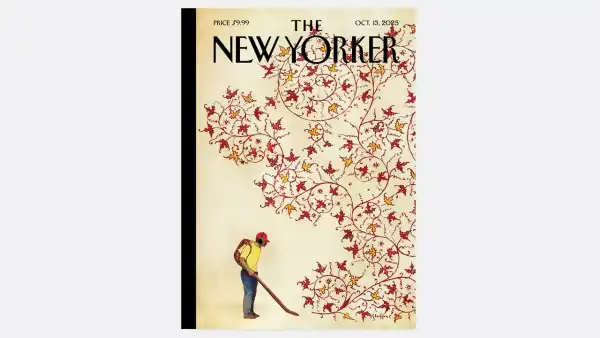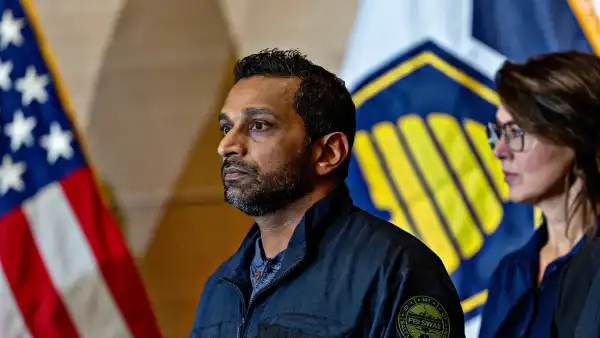
A couple of weeks ago, smartly dressed couples and googly-eyed teens
filled Shepherd’s Bush Empire, a two-thousand-seat hall nestled in a
mostly residential enclave of West London, for a headlining Valentine’s
Day performance by the budding singer Jorja Smith. Partners sharply
guarded seats, angling for ideal viewing; a stream of
not-quite-old-school R. & B. wafted from the sound system. Smith, who
was born in the West Midlands, is already a star in the United Kingdom
and beyond; she earned the 2018 Brit Critics’ Choice Award, in December,
for the solo material she’s been self-releasing since 2016, and Drake,
ever the trend spotter, eagerly listed her as a favorite new artist.
Stateside fans know Smith best as the candied voice carrying “On My
Mind,” an infectious pop single that recalls London’s late-nineties
garage sound. But the upbeat dance record is really a fakeout; Smith’s
growing catalogue, which she performed backed by a four-piece band, is
overwhelmingly slow and brooding, more solemn lounge music than spritely
pop. She has a voice that can break through the noise, but she prefers songs
with a tempered quiet—imagine Rihanna riffing from behind a grand
piano.
At Shepherd’s Bush Empire, Smith offered little by way of onstage
banter, save for a graceful recovery of a flubbed lyric during her first
song, “Something in the Way.” But an enraptured audience belted along
all the same—even a few detached chaperones accompanying young ones
were roused to attention by her set’s ending. Lyrically, most of Smith’s
sentiments are simple and affecting, and there is an innocent naïveté to
her material, a refreshing perspective that you don’t usually find in
American pop’s constant push toward the edge. “You were the topic of my
lunchtimes / I’d bore the girls about our chats, and get upset when you
didn’t text back,” Smith sings, on “Teenage Fantasy.” On “Blue Lights,”
her first single, she narrates a scene of stop-and-frisk policies that
tighten young boys’ chests on walks home from school. Played at such a
slowly unfurling, consistent pace, her concert could have benefitted
from some trimming, but Smith’s presence is intoxicating enough that few
fans tolerated the show’s false ending, immediately demanding that she
return to the stage for an encore. Smith’s mother and father watched the
scene from a reserved balcony row; two fans on the ground floor spotted
them, and drew out iPhones to film Smith’s mom bopping along to “On My
Mind,” the raucous closer that the crowd knew was coming.
Watching Smith perform, I was struck by the difference between the
prospects for a young singer of her kind in her native U.K. and in the
States. American pop has largely abandoned the kind of tactful balladry
Smith aspires to. (We even had a name for it: adult contemporary.) Well
into the nineties, artists like Whitney Houston, Celine Dion, Marc
Anthony, and Faith Hill filled out Lite FM stations across the country.
A younger generation of artists, including the singers Alessia Cara and
Khalid, maintain the tradition—especially on songs like “Here” and
“Location,” respectively—but the void left by American artists has
largely been supplanted by British acts, such as Ed Sheeran, Sam Smith,
Rag’n’Bone Man, and Adele. As Jorja Smith performed the low-thump,
bleeding-heart ballad “Where Did I Go?,” it struck me that, despite the
throngs of teen-agers singing along at her show, the twenty-year-old
performer was aiming to make music for adults, a demographic of music
listeners who have been slower to fully assimilate to streaming, and who
thus have less influence on American pop than ever before.
Just before Smith took the stage that evening, the producer and record
executive Richard Russell was wrapping up an open rehearsal at the Savoy
Cinema, an abandoned theatre across town. Russell—who has run XL Recordings since the mid-nineties, advising on the careers of artists
like Adele, the White Stripes, the xx, and M.I.A.—has spent the past
eight years inching back toward the studio, producing albums for Bobby
Womack, Damon Albarn, and Gil Scott-Heron. His latest step into the
foreground is an album called “Everything Is Recorded,” named for the
amorphous constellation of singers, producers, and rappers he tapped for
its material. He was gearing up to perform it the following night, for
the first time, in celebration of the album’s worldwide release.
Since the mid-nineties, the Savoy has sat decaying on Hackney’s Stoke
Newington Road; for his release concert, Russell and the visual artist
Toby Ziegler restored the dilapidated cinema into an exhibition space
and performance venue. In a main corridor, a small stage hosted seven to
ten musicians at a time rotating in and out on tracks from “Everything
Is Recorded.” In a second, amphitheatre-style wing, two original music
videos from the album were screened on a loop, their audio fed into
wireless headphones that fans could slip on to follow along.
The next night, Russell staged the first of two “Everything Is Recorded”
shows. Throughout the set, collaborators—including Sampha, Ibeyi,
Giggs, and a young singer named Infinite—popped in and out of
prominence, as Russell sat still behind a drum machine, off to the side,
tapping out the production’s skeletal rave pulse. Audience members
walked freely around the stage, which was surrounded by three towering,
angular cardboard sculptures; different lines of sight revealed new
clusters of performers. Rugs and lamps were placed alongside piano
stands, mimicking the décor of the attic recording studio in which
Russell produced his album over the past four years. About half of the
artists who attended those recording sessions performed live together,
on both nights, in a sprawling set that would be ambitious for any
artist, let alone a studio rat like Russell, who has hardly toured.
The Nigerian lyricist Obongjayar stalked the stage with staunch menace
not unlike that of the rap firebrand Travis Scott. Session players on
saxophone and piano dived into solos that gave calm to the show’s
stunning density. The odder moments of “Everything Is Recorded,” perhaps
unavoidable with so many moving parts, were similarly magnified live.
For instance, Naomi Diaz, of Ibeyi, singing the phrase “pray for
Becky”—likely a play on the lyric “Becky with the good hair,” from
Beyoncé’s “Sorry”—could have been smoothed. The residency’s biggest
cameo came from Giggs, who is among a godly tier of rappers in the U.K.,
and who was one of Russell’s earliest signees to XL. Giggs emerged from
backstage to awed murmurs, and the room’s energy caved toward him as he
rattled off rhymes from a song called “Wet Looking Road.” “I’m with the
gangsters, or the hipsters, but now I’m chilling with Richard,” he
quipped, providing the only instance on Russell’s album when he is
explicitly acknowledged.
“Everything Is Recorded” is billed as an electronic album, but there is
a bit of balladry at play as well. Sampha, a soulful electronic producer
and singer, pairs seamlessly with a sample of Curtis Mayfield on the
album’s lead single, “Close But Not Quite,” and its live rendition was
just as well-pronounced. Throughout the album, it is Sampha’s
contributions that seem to most fully realize Russell’s sonic goals, a
minimalist skeleton of rave drums, softened by the harmonies and
textures of blues and soul. Russell closed his concert with the album’s
title track, also voiced achingly by Sampha over suites of violins and a
buzzy bass. Onstage, the track took on the air of a church revival, with
choral arrangements and mournful wails, before the Dallas minister T. D. Jakes delivered a coronation via a snatch of sampled audio. Life, death,
and the moments in between: Russell’s album, and its live staging,
pushed stone-serious themes into discordant, club-music contexts. One
might call it music for contemporary adults.
As the performance rumbled to a close, Diaz began to chant Russell’s
name over the crowd’s applause; Russell rushed to muffle the microphone,
with a playful wince, before ducking backstage. “I don’t know what he
does, though,” one fan told a friend, as the crowd trickled into the
street. “I’d never heard of him before this.” Modesty may be an asset
for the U.K.’s current crop of stars and budding talents, a sign of
their maturity. Both Smith and Russell were most comfortable letting
their work speak for them; sometimes, it’s the most effective way to be
heard.
Sourse: newyorker.com






